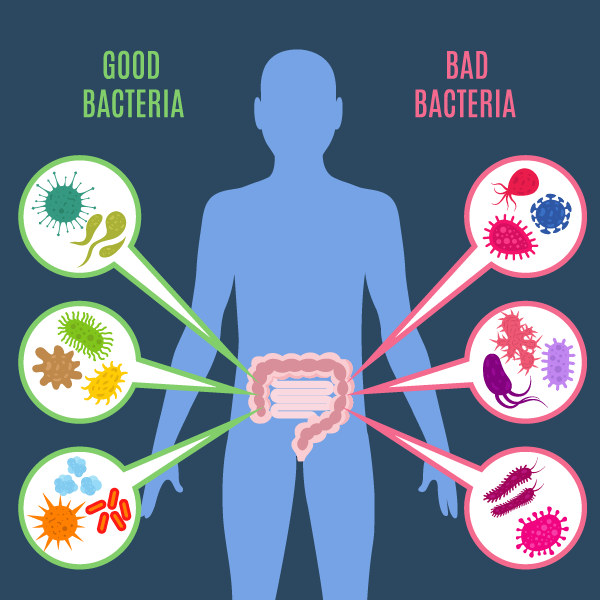Walk down the refrigerated section of any grocery store aisle and you’ll see shelves lined with yogurt containers screaming out the benefits of probiotics—the ‘good bacteria’ that help with digestion. Words like microbriome, gut health, and probiotics are now part of our common vocabulary. But, little has been mentioned about “prebiotics”!
In low concentrations in foods like onions, garlic, chicory root, and bananas—they usually reach the colon undigested. In the colon, prebiotics are broken down into smaller carbohydrates or “carbs” as we usually say. Probiotics eat these ‘carbs’ creating positive health effects—such as improved colon functions, reduced inflammation and protection from infections. In this way, prebiotics and probiotics work together to promote gastrointestinal health.
Scott Peterson PhD, professor at SBP, recently worked with UC San Diego and The Chopra Foundation to assess the prebiotic effects of three herbs (slippery elm, licorice and triphala) that are commonly used in Ayurvedic medicine—a system that has been practiced in India for over 5,000 years.
“Very few scientific and clinical studies have been done to test the effectiveness of these herbal medicines,” says Peterson. “We wanted to see how these herbs affect the growth and population of 300 species of bacteria commonly found in the gut.
Peterson’s team looked at fecal samples collected from 12 healthy middle-aged men and women who ate a vegetarian or vegan diet. The team wanted to know how the bacterial populations in the gut change when exposed to the medicinal herbs.
“We were surprised at the extent and complexity of the changes in the gut microbiota composition,” says Peterson. “And the species most positively impacted by the herbal supplements were predominantly species with documented health-promoting qualities.
“This study, published in the Journal of Alternative and Complementary Medicine, highlights the significant prebiotic potential of herbal medicines and suggests that the health benefits of these herbs are due, at least in part, to their ability to modulate the gut microbiota in manner linked to improved gastrointestinal health,” explains Peterson.
“You can’t patent an herb. But there is an opportunity to combine prebiotics and herbs into potential medicines. If we can use natural therapy to reduce inflammation for example, then it may change the effectiveness of certain drugs used to treat obesity, type 2 diabetes or inflammatory bowel disease (IBD).”
Considering that about 65 million Americans suffer from disorders of the gut, novel evidence-based medicines may offer new options for relief. The researchers are already planning to test these herbs in a controlled human clinical trial.
